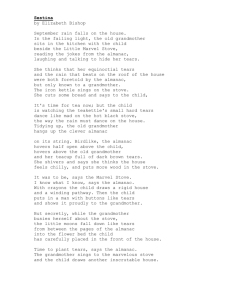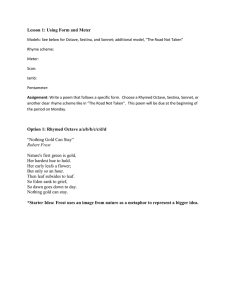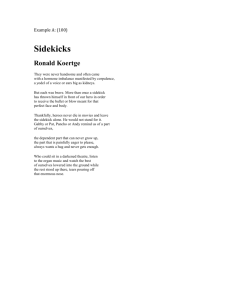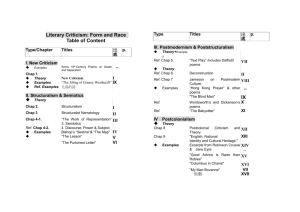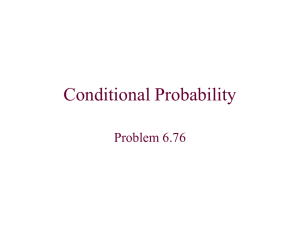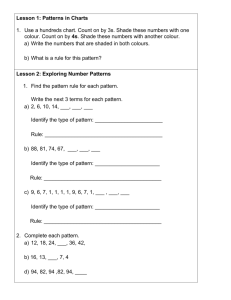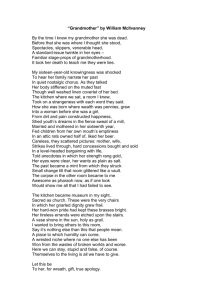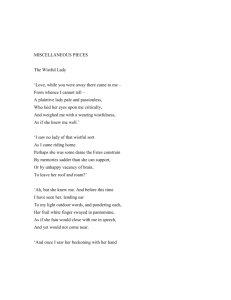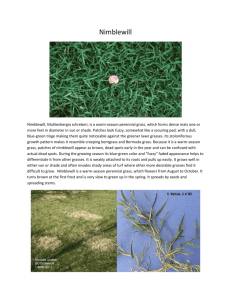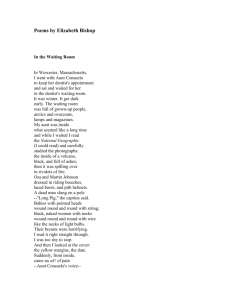Sestina of the Lady Pietra degli Scrovigni
advertisement
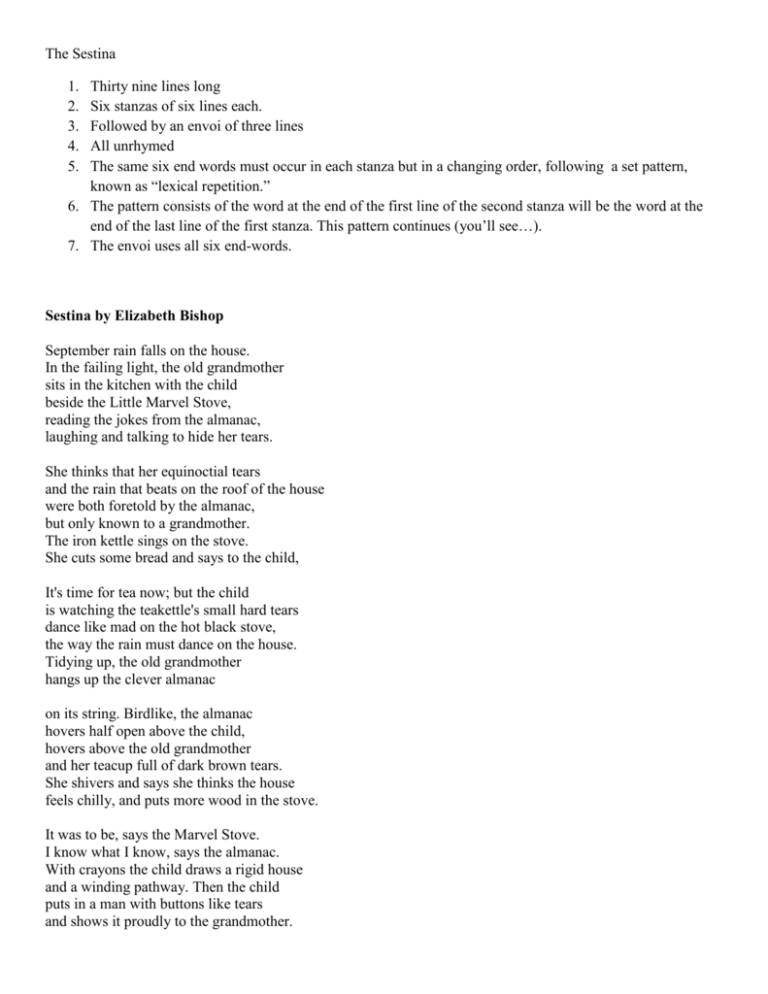
The Sestina 1. 2. 3. 4. 5. Thirty nine lines long Six stanzas of six lines each. Followed by an envoi of three lines All unrhymed The same six end words must occur in each stanza but in a changing order, following a set pattern, known as “lexical repetition.” 6. The pattern consists of the word at the end of the first line of the second stanza will be the word at the end of the last line of the first stanza. This pattern continues (you’ll see…). 7. The envoi uses all six end-words. Sestina by Elizabeth Bishop September rain falls on the house. In the failing light, the old grandmother sits in the kitchen with the child beside the Little Marvel Stove, reading the jokes from the almanac, laughing and talking to hide her tears. She thinks that her equinoctial tears and the rain that beats on the roof of the house were both foretold by the almanac, but only known to a grandmother. The iron kettle sings on the stove. She cuts some bread and says to the child, It's time for tea now; but the child is watching the teakettle's small hard tears dance like mad on the hot black stove, the way the rain must dance on the house. Tidying up, the old grandmother hangs up the clever almanac on its string. Birdlike, the almanac hovers half open above the child, hovers above the old grandmother and her teacup full of dark brown tears. She shivers and says she thinks the house feels chilly, and puts more wood in the stove. It was to be, says the Marvel Stove. I know what I know, says the almanac. With crayons the child draws a rigid house and a winding pathway. Then the child puts in a man with buttons like tears and shows it proudly to the grandmother. But secretly, while the grandmother busies herself about the stove, the little moons fall down like tears from between the pages of the almanac into the flower bed the child has carefully placed in the front of the house. Time to plant tears, says the almanac. The grandmother sings to the marvelous stove and the child draws another inscrutable house. Sestina of the Lady Pietra degli Scrovigni By Dante Gabriel Rossetti To the dim light and the large circle of shade I have clomb, and to the whitening of the hills, There where we see no color in the grass. Natheless my longing loses not its green, It has so taken root in the hard stone Which talks and hears as though it were a lady. Utterly frozen is this youthful lady, Even as the snow that lies within the shade; For she is no more moved than is the stone By the sweet season which makes warm the hills And alters them afresh from white to green Covering their sides again with flowers and grass. When on her hair she sets a crown of grass The thought has no more room for other lady, Because she weaves the yellow with the green So well that Love sits down there in the shade,– Love who has shut me in among low hills Faster than between walls of granite-stone. She is more bright than is a precious stone; The wound she gives may not be healed with grass: I therefore have fled far o’er plains and hills For refuge from so dangerous a lady; But from her sunshine nothing can give shade,– Not any hill, nor wall, nor summer-green. A while ago, I saw her dressed in green,– So fair, she might have wakened in a stone This love which I do feel even for her shade; And therefore, as one woos a graceful lady, I wooed her in a field that was all grass Girdled about with very lofty hills. Yet shall the streams turn back and climb the hills Before Love’s flame in this damp wood and green Burn, as it burns within a youthful lady, For my sake, who would sleep away in stone My life, or feed like beasts upon the grass, Only to see her garments cast a shade. How dark soe’er the hills throw out their shade, Under her summer green the beautiful lady Covers it, like a stone cover’d in grass. The Shrinking Lonesome Sestina Somewhere in everyone's head something points toward home, a dashboard's floating compass, turning all the time to keep from turning. It doesn't matter how we come to be wherever we are, someplace where nothing goes the way it went once, where nothing holds fast to where it belongs, or what you've risen or fallen to. What the bubble always points to, whether we notice it or not, is home. It may be true that if you move fast everything fades away, that given time and noise enough, every memory goes into the blackness, and if new ones comesmall, mole-like memories that come to live in the furry dark-they, too, curl up and die. But Carol goes to high school now. John works at home what days he can to spend some time with Sue and the kids. He drives too fast. Ellen won't eat her breakfast. Your sister was going to come but didn't have the time. Some mornings at one or two or three I want you home a lot, but then it goes. It all goes. Hold on fast to thoughts of home when they come. They're going to less with time. Time goes too fast. Come home. Forgive me that. One time it wasn't fast. A myth goes that when the years come then you will, too. Me, I'll still be home. -- Miller Williams
